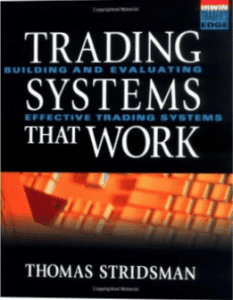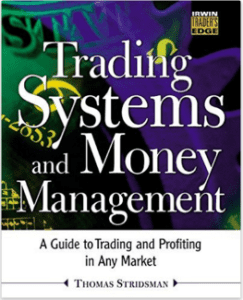
Thomas Stridsman has over 20 years experience in the financial markets.
He was an editor for Futures magazine and published two books on trading system development and money management.
He is now a fund manager at Alfakraft, specialising in short-term trend following strategies with a focus on dynamic size allocation and risk distribution algorithms.
In this episode we discuss strategy testing, why you need to normalise metrics, tips to creating robust strategies and why he doesn’t test entries and exits any more (and what to focus on instead).
Show your support
While you’re listening, it would be great if you could show your support by leaving a brief review of the podcast in iTunes. This really helps to spread the word and reach even more listeners!
Topics discussed
- The differences between short term trend following and long term trend following
- Why backtesting metrics should be normalised to give an accurate picture of performance
- Why you should look to restrict the number of consecutive winners and losers
- The difference between a good model and a profitable one
- Tips to creating robust systems
- Trading costs and when to include them in testing
- Using standard deviation to determine system robustness
- How his systems development approach has changed over the years
- The one particular insight that propelled his trading forward
- Applying Optimalf to position sizing
- The future of trading
Resources mentioned in this episode
- Thomas can be followed on his website alfakraft.se
- Thomas recommended the Futures magazine website, particularly the work of Murray Ruggiero
- He also mentioned the Attain Futures blog and the Tradingview website
- Recommended books:
Quotes
Top tips from this episode
Here are few of my favourite takeaways from the chat with Thomas this week:
- Normalising metrics – something I’m sure many traders have been guilty of at times is looking at metrics in absolute terms, for example the average win as a $ amount, which can mean different things depending on the actual level of the instrument so normalised values, like percentages, may give a more accurate picture.
- Importance of money management – we hear this often but Thomas went as far to say that he even though he runs a fund, he uses the most basic entries and exits that can be found on the internet. He has an understanding of some basic things that work and he doesn’t spend time researching entries and exits, his focus is all on money management; ‘Money management makes all the difference’.
Got A Question, Topic or Guest you want to see on the Podcast?
Do you have a specific question, topic or guest you’d like to see on a future podcast episode?
Click here and submit your suggestion for a chance to have it featured on an upcoming podcast episode.
Get the Transcript
Subscribe to Better System Trader and never miss another episode!
Please support the podcast by giving an honest Rating/Review for the show on iTunes!







